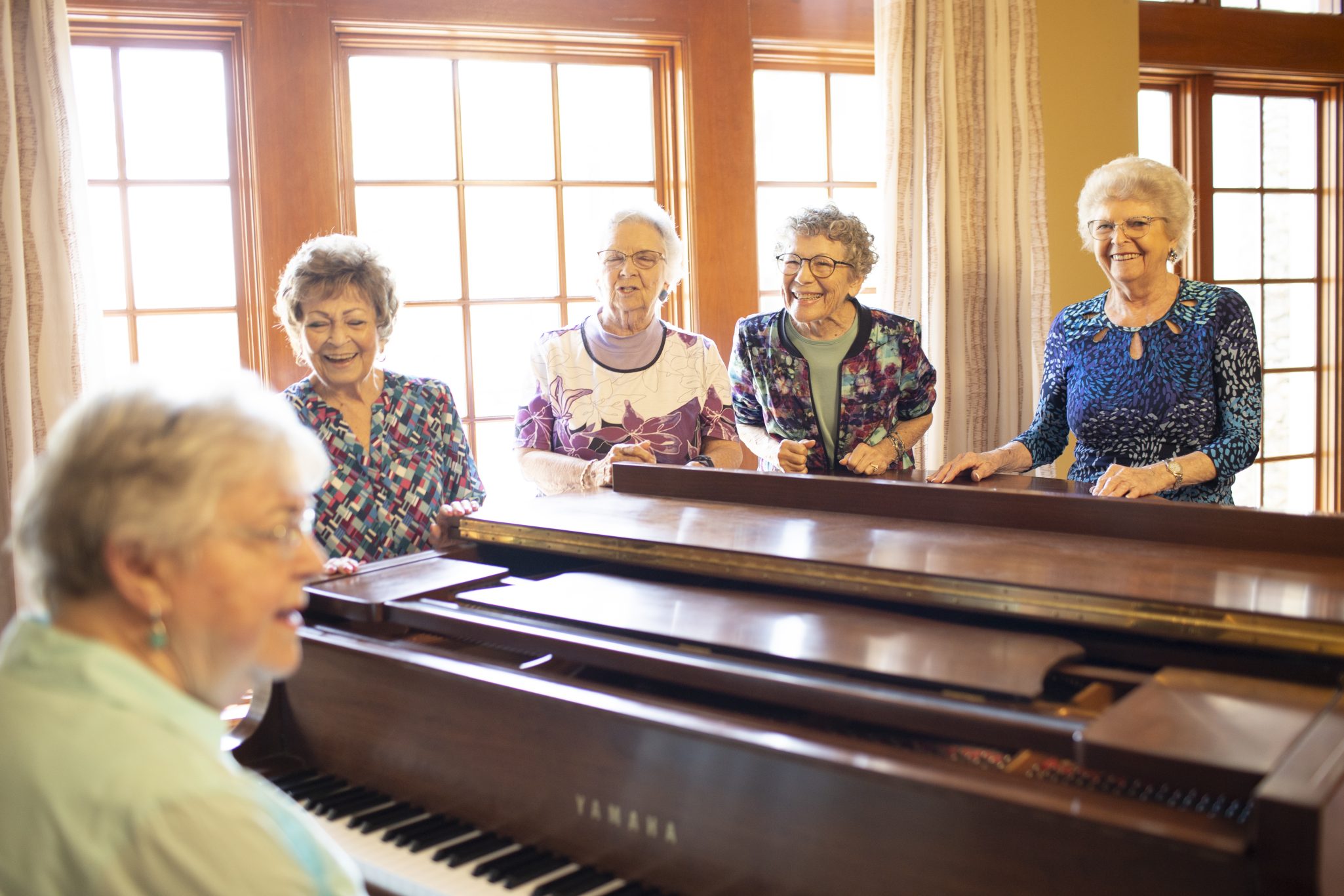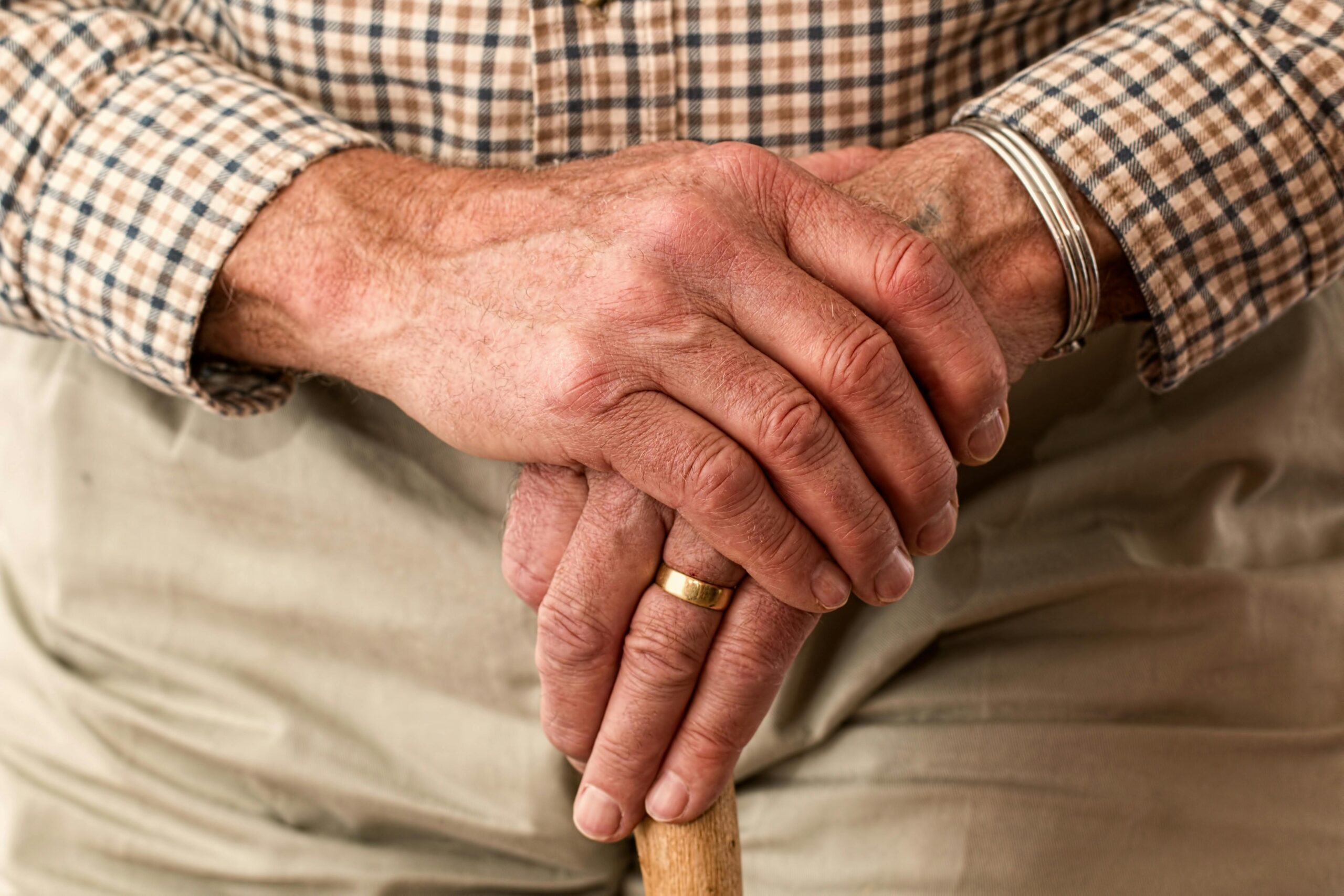Combating Social Isolation in Seniors

One of the key aspects of healthy aging is having a connection to your community that allows you to form and maintain positive social relationships. These relationships are so important when it comes to your physical and mental health. Without them, experiencing senior social isolation in older adults is a common occurrence.
Studies show that a third of Americans over 45 have feelings of loneliness, while a quarter of adults over 65 are living in social isolation. Loneliness and isolation can harm your physical health, leading to higher rates of certain medical conditions compared to people who regularly engage in social activities.
Finding ways of combating social isolation as you age is vital. There are several ways to build up relationships and forge connections in your community. All it takes is a little know-how to start.
Understanding Social Isolation
While similar, loneliness and social anxiety aren’t exactly the same thing. Loneliness is the negative feeling that you get when separated from others. Social isolation is defined as having little-to-no social contact on a regular basis or having few social contacts in general.
This kind of isolation can have different causes, but the most common in older adults are:
- Loss of mobility
- Disability
- Changes in physical health that make it difficult to socialize
- Loss of close family and/or friends
Some people enjoy spending time on their own more than others and prefer solitude. Solitude is a choice that people make to spend time alone, enjoying activities without feeling lonely. Isolation is not the same, as most people want to avoid it rather than seek it out. Isolation can be forced onto older adults due to outside circumstances and usually leads to feelings of distress or loneliness.
Social isolation can be dangerous for both your physical and mental health. Older adults experiencing social isolation have higher chances of developing:
- Dementia
- Depression
- Anxiety
- Heart failure
- Heart disease
- Stroke
- Premature death
Apart from this, isolated seniors also have much higher rates of hospitalization and visits to the emergency room for various health reasons.
As you can see, combating social isolation is critical for seniors as it affects so many different aspects of health. That’s why healthy aging makes it a priority to include regular social activity as a part of a healthy lifestyle.
The Importance of Social Connection
Having a strong social connection as an older adult can do wonders for your health. There are places known as Blue Zones, which are areas where adults live long, healthy lives with minimal to no health complications. And an important part of daily life is the connection that seniors have with their communities. These close relationships give seniors a sense of belonging and a better overall quality of life as they age.
Being social as you age gives you the feeling of safety and security, knowing that there is always someone to check in on you or that you can ask for help as you need it. Engaging in social activities increases your longevity and your immunity, too. On the other hand, social isolation can be as harmful to your health as smoking, high blood pressure, and obesity.
There’s a connection between being social and cognitive function as you age. Studies suggest that seniors who have frequent social connections in their routines are 70% less likely to experience cognitive decline compared to older adults who don’t socialize often.
Along the same lines, older adults who are socially connected often have better mental and emotional health. They’re less likely to develop mood disorders or mental health issues that can impact their quality of life.
Senior Living Communities: An Engaging Lifestyle
Senior living communities are an excellent remedy when it comes to fighting back against isolation as you age. The very essence of places like these is that they are communities where residents can live healthy, fulfilling lives in a social atmosphere. From the start, residents are surrounded by other people from all walks of life who all have a common goal: to experience healthy aging in a fun and dynamic atmosphere and improve their quality of life in their golden years.
Sneior living communities are staffed with professionals who perform regular check-ins with residents to see how they’re doing and feeling. Residents also have a wide network of neighbors within the community who are also looking for the comfort that tight social connections can provide. Both of these things work together to ensure that each resident has the opportunity to form close bonds with those around them.
Best of all, senior living communities put a lot of thought into designing multi-purpose activities for their residents to enjoy. Group activities in senior communities aim to provide older adults with plenty of time to socialize, which is one of the main goals. Besides this, they can also focus on improving physical health, brain function, or even just fulfilling the soul, depending on the activity.
Participating in Group Activities
While senior living communities provide tons of opportunities to get out there and meet new people, it’s equally important that the residents realize the importance of participating in these activities. Social isolation can cause serious health problems in older adults, to the point of taking years off of their lives. Giving seniors a variety of things to choose from to improve their mental and physical health can get them interested in participating.
At the heart of these community living centers is health. So, communities arrange a number of fitness classes for all levels that also allow for socializing. Think yoga, fitness classes in the pool, strength training, cycling, Tai Chi, and varius other activities to maintain balance and muscle strength.. Light-to-moderate exercise is essential to staying mobile and agile as you age, so why not try it out with a group of friends that you can share a laugh with?
Besides fitness classes, senior communities have a plethora of other activities to enjoy in a group setting, like games, parties, lifelong learning seminars, clubs, cooking classes, and much more. Senior living communities try to cater to all interests so that residents can enjoy what they love most with the added benefits of promoting both physical and mental health.
Pursuing Hobbies and Interests
Activities at senior living communities are geared toward socializing, plus health and wellness, but are also designed to explore a wide range of interests and hobbies. Having personal interests and hobbies helps to retain cognitive function as you age, since they challenge you to use different parts of your brain. When you do things that bring you pleasure, it also helps to reduce stress. Reducing stress as an older adult can help lower your blood pressure and improve your overall heart health.
Taking part in a group activity focused on something that you’re passionate about already brightens your mood. But so does the added benefit of getting to do it with friends and neighbors. Doing hobbies, especially in the company of others, can tighten your social connections and sense of community while combating loneliness. This sense of belonging has both physical and mental benefits that you’ll notice as you age.
Studies show that enjoying hobbies can:
- Help keep older adults mobile for longer
- Improve immunity
- Improve mood and mental health
- Improve cardiovascular health
Never Feel Alone at SRG Senior Living
SRG Senior Living has luxury senior living communities around the country that are dedicated to healthy aging. Living in our communities means living in a warm and welcoming atmosphere that’s full of peers who want to enjoy a fun and healthy lifestyle.
With endless activities to choose from and plenty of happy neighbors around, the opportunities to combat social isolation are endless. We are dedicated to providing our residents with exciting and fulfilling activities and experiences to suit all interests, all while encouraging strong community bonds.
Reach out to us today to learn more about all that SRG Senior Living can offer.




